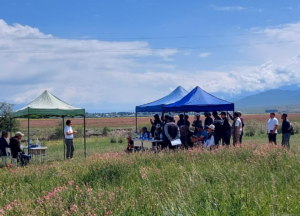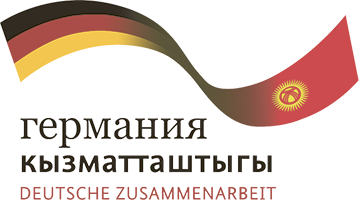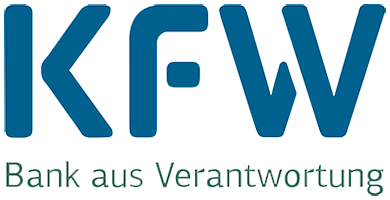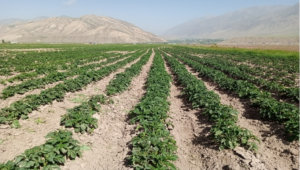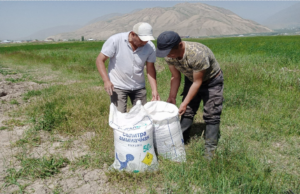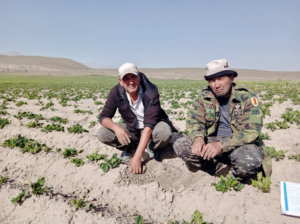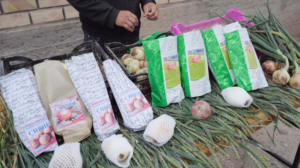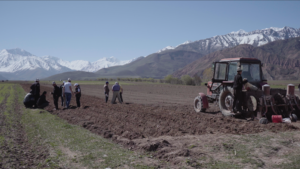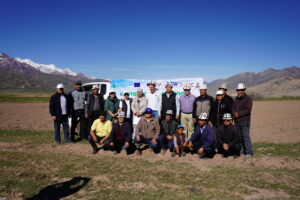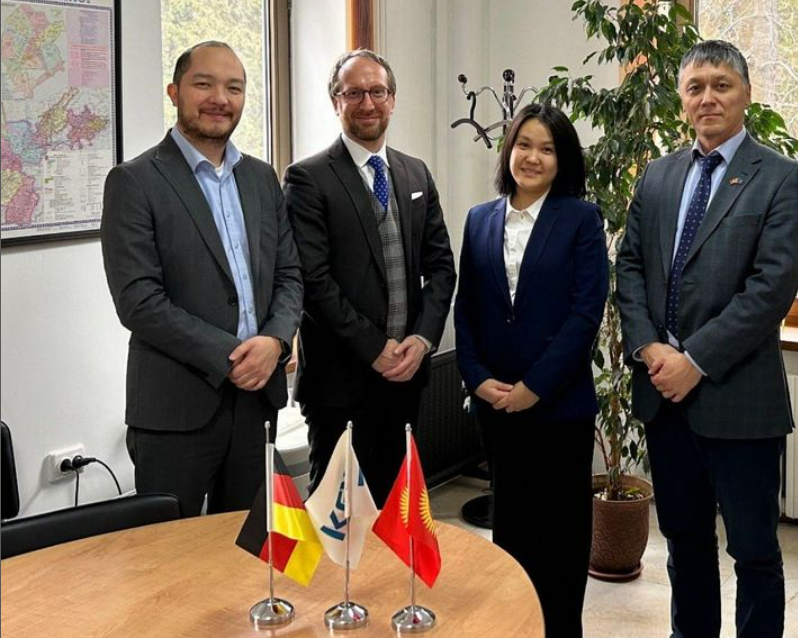Successful Seed Potato Cultivation in Kyrgyzstan: A Field Visit Report
This year, our farmers in the At-Bashinsky district planted super elite seed potatoes of the Silvana, Peridiz, Kolomba, and Kmeliya varieties.
As a result, from July 8 to 10, 2024, a field visit was conducted in the Naryn region as part of the “Agrofinancing of Value Chains” project to monitor and evaluate the condition of irrigated seed potatoes.
During the field visit, project experts visited 4 demonstration plots. The overall condition of the fields is excellent, with no signs of diseases or pests despite the abundant rainfall. However, to prevent disease development, the project’s farmers use additional methods to protect the crops from pests and apply nutritional supplements to enhance soil fertility.
Recently, the agricultural consulting service—project partner—visited the seed potato plots in the villages of Kalichino, Acha-Kaindy, Bash-Kaindy (At-Bashinsky district), and Ak-Jar (Kochkor district) as part of the Agrolead company’s seed potato program.
Continuing with the monitoring activities, a seed production training was also held on July 9, where farmers and participants in agricultural schemes took part. The training aimed to enhance farmers’ knowledge of seed potato production and processing methods.

